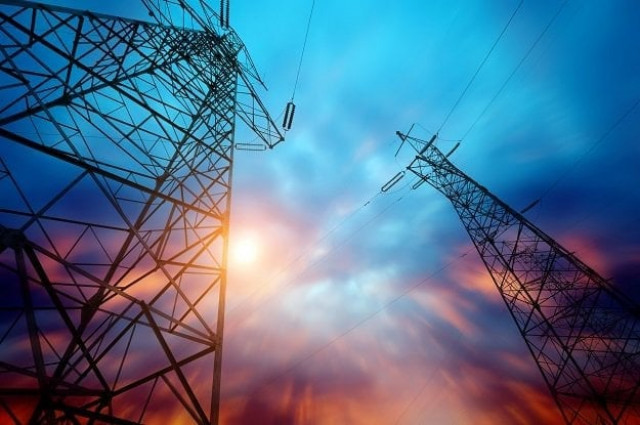No ‘capacity payments’ for small hydel units
Currently, consumers are shouldering 70% of electricity costs due to these payments made to IPPs

The government has decided to eliminate the concept of ‘capacity payments’ for small hydropower projects, aiming to reduce the financial burden on power consumers.
Currently, consumers are shouldering 70% of electricity costs due to these payments made to Independent Power Producers (IPPs), totalling around Rs2.2 trillion annually to those not producing a single unit of electricity.
During discussions on standard security agreements for small hydropower projects under the Power Generation Policy 2015, the cabinet committee on energy (CCoE) was briefed that hydrological risk has now been parked on the power producers, though the policy provided that it would be borne by the power purchasers.
Additionally, the existing two-part tariff regime, which separated capacity and energy payments, had been replaced with a single-part tariff based on a “take-and-pay” system with a “must-run” arrangement.
The changes stem from two main issues, mainly unreliable hydrological data measured by the sponsors’ team and the location of small hydropower projects on minor streams and tributaries. Consequently, the hydrological risk cannot be placed on the power purchaser.
However, to ensure the bankability of the project, Nepra, while determining recent tariffs of SHPPs, has introduced a “take and pay” with a “must-run” concept which means whatever energy would be produced by the project, the purchaser will off-take such energy or pay for the missed volume.
Thus, standard security package documents has been prepared in complete harmony and conformity with the policy while at the same time keeping in view the trend of Nepra’s recent tariff determinations for SHPPs. These changes aimed at ensuring that the SHPPs would only be paid tariffs on a delivered energy basis, and there was no concept of capacity payments based on mere availability.
In this context, the Power Division solicited views and comments from Nepra. The power regulator’s response affirmed that the existing CCI-approved policies did not bar Nepra from allowing must-run conditions for small hydropower projects.
Nepra further stated that in recent cases, involving small hydropower projects, it had shifted to the take-and-pay contract with must-run, while also transferring the risk of hydrology to power producers to better serve consumers.
The PPIB board, in its 129th meeting on January 4, 2021, approved the standard draft of the Implementation Agreement (IA) along with the GOP guarantee (Schedule 3 to the IA) for the payment obligations of the power purchaser, AJK/provinces under and pursuant to the energy purchase agreement (EPA), AJK IA, and the water usage agreement (WUA) (wherever required).
It was highlighted that the standard draft security package documents had been prepared using earlier ECC-approved security package documents for hydel projects processed under the Policy for Power Generation Projects 2002.
Earlier, a summary was submitted to the ECC with some proposals. It was requested that the Standard GOPIA (along with the GOP Guarantee at Schedule 3) and the standard EPA for SHPPs be approved.
Additionally, it was requested that the contractual obligations of the AJK and provincial governments arising out of and under the AJK IAs and WUAs executed based on the standard AJK IA and WUA be backstopped and guaranteed by the GOF under the GOP IA and GOP guarantee, respectively.
It was further proposed that the Boards of the PPIB, CPPAG, and the governments of the AJK and provinces be authorised to make and approve any project-specific amendments to the respective agreements required during final negotiations, provided the GOP obligations or liabilities under the GOP IA and Guarantee were not increased.
Furthermore, the Boards of PPIB, CPPAG, and the governments of AJK and provinces should be authorised to make and approve any amendments to the GOPIA, EPA, AJ&K IA, and WUA, as needed, to comply with Nepra’s tariff determination and approval/licence for specific projects.
The Power Division informed that the ECC in a decision on October 7, 2021 had directed it to first place the matter before the CCoE for consideration and then to the ECC. The CCoE, in a decision on October 29, 2021, directed the Power Division to revisit the standard security agreements for small hydropower projects under the Power Generation Policy 2015 in consultation with relevant stakeholders to align the recommendations with the cabinet-approved fundamental principles of “moving to a competitive market” and “no must-run projects,” and submit them for consideration of the CCoE.
The Power Division informed that the assumptions of the Indicative Generation Capacity Expansion Plan (IGCEP) had been approved by the CCI, after which Nepra approved the IGCEP 2021-30. The National Electricity Policy 2021 mandated that all future capacity additions would be procured on a least-cost basis. Against this backdrop, the PPIB would only process those SHPPs which were ‘Committed Projects’ in IGCEP.
Riali Hydro Power Project (HPP) is a 7.08 MW project located in AJK. The PPIB issued a Tripartite Letter of Support (LOS) after Nepra determined the tariff for the project on a must-run basis, as under the applicable regulatory framework, hydropower and renewable projects were dispatched out of economic merit order.
Moreover, the LOS issued by the PPIB Board has expired. In contrast, when these projects are shut down due to IPPs’ default, the power purchaser is not obliged to pay. The CCoE considered the summary submitted by the Power Division regarding “Standard Security Agreements for Small Hydro-Power Projects under Power Generation Policy 2015” and approved the proposals.



















COMMENTS
Comments are moderated and generally will be posted if they are on-topic and not abusive.
For more information, please see our Comments FAQ